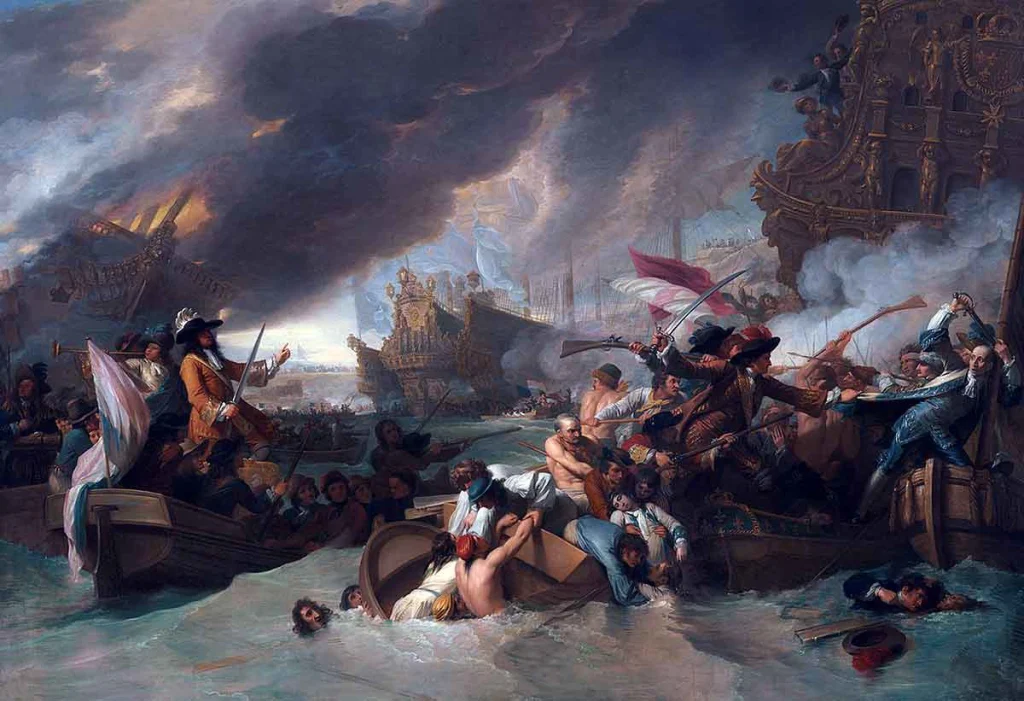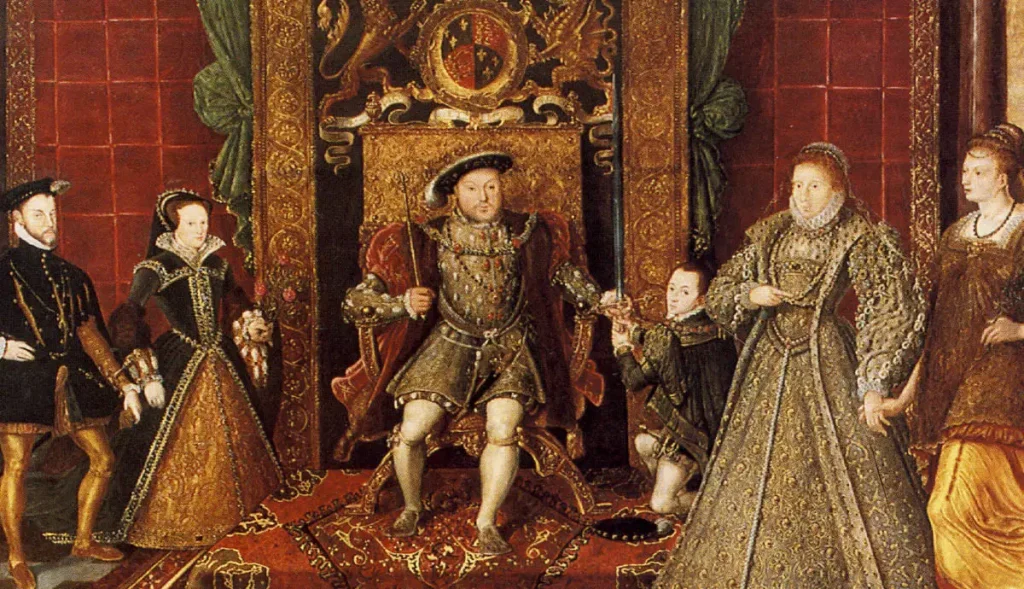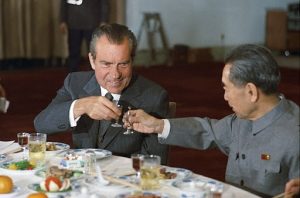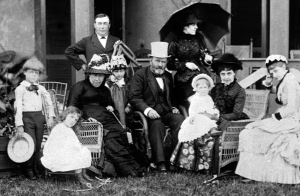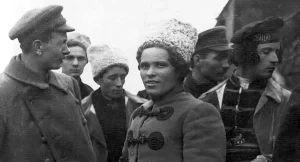Kant stands at one of the great dividing points in the history of ethics. His ideas have profoundly shaped modern moral philosophy—even for many who claim to be anti-Kantian, the very framework of morality is often understood in Kantian terms. In this post, we explore Kant’s revolutionary contributions, his synthesis of Enlightenment ideals, and the enduring impact of his theories on duty, autonomy, and moral law.
Kant at the Crossroads of Enlightenment Thought
Immanuel Kant is both a typical and a supreme representative of the Enlightenment. His belief in the power of courageous reasoning and institutional reform resonated with an era determined to shape a better world. At the same time, Kant sought to resolve or reframe many of the core problems that preoccupied his contemporaries. In particular, he managed to synthesize two dominant currents of thought: the precise, law-governed universe of Newtonian physics and the empirical insistence of thinkers like Helvétius and Hume.
For Kant, the possibility of rational knowledge—even in domains as abstract as morality—depended on understanding how our mind actively structures experience. His famous dictum, “Concepts without perceptions are empty; perceptions without concepts are blind,” captures this idea perfectly. According to Kant, experience is not a passive reception of sensory data but a dynamic process of ordering perceptions through innate concepts and categories. This revolutionary idea would not only transform epistemology but also lay the groundwork for his moral philosophy.
The Synthesis of Reason and Experience
Kant’s critical project in the Critique of Pure Reason set out to reconcile the seemingly opposing views of empiricism and rationalism. Empiricists had argued that our knowledge is limited to what our senses provide, while the success of Newtonian physics pointed to the existence of universal, law-like principles. Kant resolved this tension by arguing that while our sensory experience is indeed the starting point, it is the mind’s inherent structure that organizes this experience into the orderly phenomena we observe.
This insight has two major implications for his moral theory. First, it means that our knowledge of the natural world, including its causal laws, cannot serve as the basis for our understanding of morality. Nature, being entirely impersonal, cannot provide us with a foundation for moral obligations. Second, it suggests that morality must reside in a realm independent of contingent natural facts. Just as our experience of the world is shaped by a priori concepts, so too must the principles of morality be derived from the inherent capacities of our rational minds.
Morality Beyond Nature: The Realm of Duty
Kant’s inquiry into morality begins with an uncontroversial observation: nothing is unconditionally good except a good will. Attributes like health, wealth, or even intellect are only valuable insofar as they are directed by a good will. This good will is intrinsically valuable—it “shines forth like a precious jewel”—even when it is not capable of achieving the best outcomes due to limitations of strength, wealth, or cleverness.
At the heart of Kant’s ethical theory is the idea that the moral worth of an action is determined not by its consequences, but by the motive behind it. A good will acts solely from duty, not from inclination or self-interest. For instance, a shopkeeper who gives the correct change might do so to secure future business, but that does not make his action morally commendable in the Kantian sense. What matters is that the action be performed for the sake of duty itself—a duty that is recognized as binding on all rational beings.
The Categorical Imperative: A Test for Moral Law
Kant introduces the concept of the categorical imperative as the central principle of his moral philosophy. Unlike a hypothetical imperative—which tells us what we ought to do if we desire a particular outcome—the categorical imperative commands unconditionally. It takes the form, “You ought to do such and such,” with no qualifications or conditions attached.
The categorical imperative is best illustrated by Kant’s universalization test. To determine if a moral precept is valid, one must ask whether the maxim behind an action can be consistently willed as a universal law. For example, consider the maxim, “I may break my promise whenever it suits me.” If everyone adopted this maxim, the very concept of promise-keeping would collapse, rendering promises meaningless. Thus, such a maxim cannot be universalized without contradiction, and it fails the test of the categorical imperative.
This universalizability criterion requires consistency and rationality. A truly moral law must be one that all rational agents could accept as binding on themselves, regardless of personal interests or situational variables. In doing so, Kant elevates individual reason to the highest authority in moral matters.
Hypothetical Versus Categorical Imperatives
Understanding Kant’s distinction between hypothetical and categorical imperatives is crucial to grasping his moral theory. Hypothetical imperatives are conditional and depend on an agent’s desires or goals. For example, “Press the switch if you wish to ring the bell” is a hypothetical imperative of skill, while “You ought to study hard if you want to be happy” is a hypothetical imperative of prudence.
In contrast, the categorical imperative is not contingent on any particular end. It is a command that holds regardless of an individual’s desires or circumstances. When we say “You ought to do it” without any further explanation, we are appealing to the categorical nature of the moral law. This distinction underscores the radical nature of Kant’s ethics: morality is not derived from empirical desires or contingent outcomes but from the intrinsic rationality and autonomy of the moral agent.
Autonomy and the Sovereignty of the Moral Agent
A revolutionary aspect of Kant’s moral philosophy is his assertion of the autonomy of the moral agent. According to Kant, rational beings are the authors of their own moral law. We do not follow morality because it is imposed by an external divine authority or dictated by the pursuit of happiness; rather, we recognize the duty prescribed by our own reason.
This self-legislation is what Kant means by moral autonomy. When we act according to the categorical imperative, we are obeying a law that we ourselves have given to our will. In this way, each individual becomes his or her own moral authority, independent of external influences. Kant’s idea of autonomy not only empowers individuals to be the masters of their own moral decisions but also lays the foundation for modern notions of liberal individualism and personal freedom.
The Role of Consequences and the Summum Bonum
While Kant is adamant that morality is determined solely by duty, he is not entirely indifferent to the role of happiness. He contends that it would be intolerable if duty were not eventually crowned with happiness. However, Kant carefully detaches the notion of happiness from the direct consequences of our actions. Instead of serving as the basis of moral judgment, happiness becomes a kind of ultimate reward—a summum bonum—that is promised only insofar as it aligns with our rational duty.
This introduces a subtle tension in Kant’s theory. On one hand, the moral law is entirely formal and indifferent to empirical outcomes; on the other hand, there is an almost theological hope that virtue will eventually be rewarded with happiness, even if that reward lies beyond our mortal life. For Kant, this hope is not a justification for acting from inclination or self-interest but rather a necessary postulate of practical reason, alongside freedom and immortality.
Practical Reason: God, Freedom, and Immortality
Kant’s practical reason is built on three essential postulates: God, freedom, and immortality. Freedom is the necessary condition for moral obligation because only a free agent can choose to act from duty rather than from inclination. The existence of God is postulated as the guarantor of the summum bonum, ensuring that virtue is ultimately rewarded with happiness. Immortality is necessary because the full realization of the moral ideal often exceeds what can be achieved in a single human lifetime.
These postulates, though not empirically demonstrable, are essential for making sense of our moral aspirations. They help bridge the gap between the strict rationality of the moral law and the human longing for meaning and ultimate justice. Kant’s moral framework thus remains robust even when stripped of its empirical supports, drawing its authority from the autonomy and rationality of the moral agent.
The Test of Universalization: Strengths and Limitations
The universalization test is one of the most influential—and contentious—aspects of Kant’s ethical theory. In theory, it offers a clear, objective criterion for determining which maxims can serve as genuine moral imperatives. If a maxim can be consistently willed as a universal law, then it passes the test; if not, it must be rejected as morally impermissible.
Yet, critics have pointed out that nearly any maxim can be rephrased or adjusted in a way that allows it to pass this test. For instance, while the maxim “I may break my promises whenever it suits me” clearly fails the test, a more cleverly worded version—“I may break my promises only under such narrowly defined circumstances”—might slip through the cracks. In practice, the test may impose restrictions only on those who are not sufficiently ingenious in framing their maxims. This challenge raises important questions about the practical applicability and logical rigor of Kant’s universalization criterion.
Despite these criticisms, the universalization test remains a powerful tool for moral reflection. It forces us to examine the consistency and rationality of our actions and to consider whether our personal maxims could serve as a foundation for a just and stable social order.
The Formal Nature of Kantian Duty
Another distinctive feature of Kant’s ethics is its formal character. The moral law, in Kant’s view, is not about achieving specific outcomes or fulfilling particular social roles. Instead, it is concerned solely with the form of our actions—whether they conform to the duty prescribed by the categorical imperative.
This detachment from contingent ends means that the categorical imperative primarily tells us what we should not do rather than what we should actively pursue. It sets limits on our behavior, ensuring that our actions can be universally endorsed without leading to contradictions or societal breakdowns. However, this formalism also means that Kant’s theory does not offer guidance on the positive goals we should strive for. While it protects individual autonomy by allowing each person to choose their own ends, it leaves open the question of how to direct our lives beyond merely obeying duty.
Duty and the Rejection of External Authority
One of the most liberating—and challenging—aspects of Kant’s ethics is its rejection of external moral authorities. Kant firmly argues that no external source, be it divine command or the dictates of societal norms, can serve as the ultimate basis for morality. Instead, each individual must rely on his or her own reason to determine what is right.
This insistence on self-legislation is what Kant calls the autonomy of the moral agent. By recognizing that we are our own moral authorities, we free ourselves from the tyranny of heteronomy—being ruled by laws imposed from outside our rational selves. This radical idea not only transformed moral philosophy but also paved the way for modern democratic and liberal ideals, where individual freedom and self-determination are held in the highest regard.
Kant’s Legacy in Modern Ethical Thought
Kant’s contributions to ethics extend far beyond his own time. His emphasis on duty, autonomy, and the universality of moral law has influenced countless philosophers and continues to shape debates in contemporary ethics. Even critics of Kant often adopt his language and concepts, such as the notion of a “good will” or the idea that moral precepts must be universally applicable.
Modern liberal individualist societies, in particular, have found in Kant a theoretical foundation that supports both personal freedom and moral responsibility. By detaching moral duty from contingent social circumstances and personal inclinations, Kant offers a vision of ethics that empowers individuals to determine their own course in life without being bound by arbitrary external commands.
Yet, Kant’s rigorous focus on the formal aspects of morality has also drawn criticism. Some argue that his approach is too abstract and fails to account for the rich diversity of human experience. Others contend that the practical challenges in applying the universalization test reveal limitations in his method. Nonetheless, even these criticisms serve to underscore the transformative impact of Kant’s work on the way we understand moral obligation.
The Interplay of Theory and Practice in Kant’s Ethics
It is important to recognize that Kant’s ethical system is not merely a theoretical construct but one that has profound practical implications. The demand that we act solely from duty, rather than from self-interest or inclination, challenges us to critically examine our everyday actions. Whether it is in the realm of promise-keeping, truth-telling, or even the more abstract commitments of civic life, Kant’s ethics calls for a steadfast adherence to principles that can be universally endorsed.
At the same time, Kant acknowledges the complexity of human nature. We are not wholly rational beings; our actions are influenced by both reason and sensibility. This duality means that while we may recognize a moral law within ourselves, we are continually tempted by inclinations that run counter to duty. Overcoming these natural impulses is, for Kant, the essence of moral freedom. In this struggle, the individual’s capacity for rational self-governance becomes both the source and the ultimate measure of moral worth.
The Enduring Appeal of Kantian Morality
Kant’s ethical theory offers a vision of morality that is as demanding as it is inspiring. It invites us to look beyond the shifting sands of empirical desires and to ground our moral decisions in the unchanging principles of reason. This appeal to universality and consistency is one reason why Kant’s ideas have remained central to moral philosophy for over two centuries.
By insisting that each of us is our own moral legislator, Kant empowers us to take responsibility for our actions and to engage in moral reflection that transcends mere habit or custom. Even in a world where the specifics of social and cultural circumstances may vary widely, the call to act from duty remains a constant and unifying principle. In this sense, Kant’s ethics provides not only a critique of our immediate impulses but also a blueprint for a more just and autonomous society.
Concluding Reflections
Immanuel Kant’s ethical revolution represents one of the most significant turning points in the history of moral thought. By synthesizing the insights of Newtonian physics and empirical observation with a bold new vision of moral autonomy, Kant redefined the very foundations of what it means to act morally. His distinction between hypothetical and categorical imperatives, along with his universalization test, challenges us to examine our actions not merely in terms of their consequences, but in light of the duty we owe to ourselves and to others as rational beings.
At the same time, Kant’s insistence on the autonomy of the moral agent has had far-reaching implications for modern liberal thought. It underpins the idea that each individual is responsible for determining and upholding moral law—a perspective that remains central to contemporary debates about freedom, responsibility, and the role of the state in regulating behavior.




